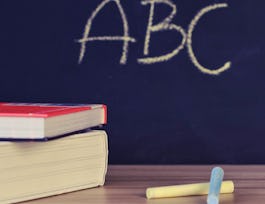This course sets out to provide an understanding of theories of learning and development and how these theories relate to educational technology. It has two components. The first is theoretical, in which we attempt to develop an overall frame of reference, locating approaches to the psychology of learning in terms of large paradigm shifts, from ‘behaviorism’ to ‘brain developmentalism’ to ‘social cognitivism’. The second component is practical, in which we will use these theoretical concepts to ‘parse’ a technology-mediated learning environment for its underlying presuppositions.


Learning, Knowledge, and Human Development
Taught in English
Some content may not be translated
30,944 already enrolled
(219 reviews)
Details to know

Add to your LinkedIn profile
1 quiz
See how employees at top companies are mastering in-demand skills


Earn a career certificate
Add this credential to your LinkedIn profile, resume, or CV
Share it on social media and in your performance review

There are 4 modules in this course
This course sets out to provide an introduction to educational psychology. It includes a variety of voices and perspectives from the College of Education at the University of Illinois. Mary Kalantzis and Bill Cope offer a historical and conceptual overview of the field, classified broadly under the terms "behaviorism," "brain developmentalism," and "social cognitivism." This is followed by four quite different practical examples of educational psychology at work. Dorothy Espelage discusses her work on the social and emotional conditions of learning in her research into bullying at school. Denice Hood gives an example of the application of psychology to educational counseling. George Reese speaks about "productive struggle" in learning. And finally, Joe Robinson-Cimpian discusses the application of quantitative psychology to analyze test results for the purposes of school and curricular placement.
What's included
2 videos8 readings1 quiz1 peer review2 discussion prompts
In this module, we explore the main theories and theorists in approaches to educational psychology that we call "brain developmentalism" and "social cognitivism."
What's included
2 videos2 readings1 peer review1 discussion prompt
This module and the following one present four leading educational psychologists from the University of Illinois demonstrating the range of applications of educational psychology. In this module, Dorothy Espelage explores the socio-emotional conditions of learning, with a particular focus on her research into bullying. Then, Denice Hood discusses student development.
What's included
9 videos1 peer review1 discussion prompt
Two more, quite varied applications of educational psychology: George Reese discusses productive struggle, and Joe Robinson-Cimpian the application of quantitative educational psychology at a systems level.
What's included
5 videos1 peer review1 discussion prompt
Instructors

Recommended if you're interested in Education

University of California, Irvine

Northwestern University

University of Illinois at Urbana-Champaign

ESCP Business School
Why people choose Coursera for their career




Learner reviews
Showing 3 of 219
219 reviews
- 5 stars
72.27%
- 4 stars
19.09%
- 3 stars
4.09%
- 2 stars
2.27%
- 1 star
2.27%

Open new doors with Coursera Plus
Unlimited access to 7,000+ world-class courses, hands-on projects, and job-ready certificate programs - all included in your subscription
Advance your career with an online degree
Earn a degree from world-class universities - 100% online
Join over 3,400 global companies that choose Coursera for Business
Upskill your employees to excel in the digital economy
Frequently asked questions
Access to lectures and assignments depends on your type of enrollment. If you take a course in audit mode, you will be able to see most course materials for free. To access graded assignments and to earn a Certificate, you will need to purchase the Certificate experience, during or after your audit. If you don't see the audit option:
The course may not offer an audit option. You can try a Free Trial instead, or apply for Financial Aid.
The course may offer 'Full Course, No Certificate' instead. This option lets you see all course materials, submit required assessments, and get a final grade. This also means that you will not be able to purchase a Certificate experience.
When you purchase a Certificate you get access to all course materials, including graded assignments. Upon completing the course, your electronic Certificate will be added to your Accomplishments page - from there, you can print your Certificate or add it to your LinkedIn profile. If you only want to read and view the course content, you can audit the course for free.
You will be eligible for a full refund until two weeks after your payment date, or (for courses that have just launched) until two weeks after the first session of the course begins, whichever is later. You cannot receive a refund once you’ve earned a Course Certificate, even if you complete the course within the two-week refund period. See our full refund policy.



